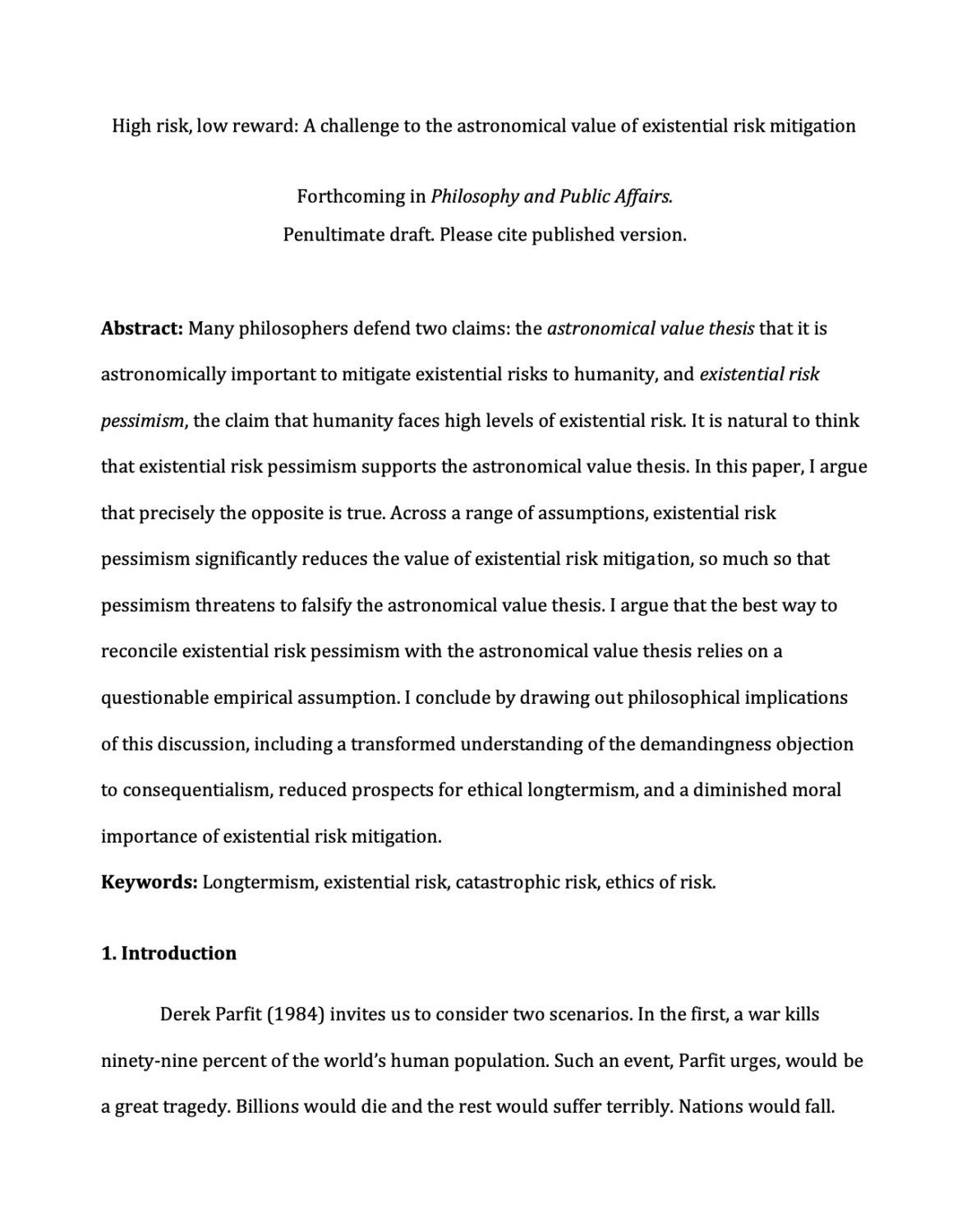High risk, low reward: A challenge to the astronomical value of existential risk mitigation
David Thorstad (Global Priorities Institute, University of Oxford)
GPI Working Paper No. 6-2023, published in Philosophy and Public Affairs
Many philosophers defend two claims: the astronomical value thesis that it is astronomically important to mitigate existential risks to humanity, and existential risk pessimism, the claim that humanity faces high levels of existential risk. It is natural to think that existential risk pessimism supports the astronomical value thesis. In this paper, I argue that precisely the opposite is true. Across a range of assumptions, existential risk pessimism significantly reduces the value of existential risk mitigation, so much so that pessimism threatens to falsify the astronomical value thesis. I argue that the best way to reconcile existential risk pessimism with the astronomical value thesis relies on a questionable empirical assumption. I conclude by drawing out philosophical implications of this discussion, including a transformed understanding of the demandingness objection to consequentialism, reduced prospects for ethical longtermism, and a diminished moral importance of existential risk mitigation.
Other working papers
Heuristics for clueless agents: how to get away with ignoring what matters most in ordinary decision-making – David Thorstad and Andreas Mogensen (Global Priorities Institute, Oxford University)
Even our most mundane decisions have the potential to significantly impact the long-term future, but we are often clueless about what this impact may be. In this paper, we aim to characterize and solve two problems raised by recent discussions of cluelessness, which we term the Problems of Decision Paralysis and the Problem of Decision-Making Demandingness. After reviewing and rejecting existing solutions to both problems, we argue that the way forward is to be found in the distinction between procedural and substantive rationality…
Simulation expectation – Teruji Thomas (Global Priorities Institute, University of Oxford)
I present a new argument for the claim that I’m much more likely to be a person living in a computer simulation than a person living in the ground-level of reality. I consider whether this argument can be blocked by an externalist view of what my evidence supports, and I urge caution against the easy assumption that actually finding lots of simulations would increase the odds that I myself am in one.
Welfare and felt duration – Andreas Mogensen (Global Priorities Institute, University of Oxford)
How should we understand the duration of a pleasant or unpleasant sensation, insofar as its duration modulates how good or bad the experience is overall? Given that we seem able to distinguish between subjective and objective duration and that how well or badly someone’s life goes is naturally thought of as something to be assessed from her own perspective, it seems intuitive that it is subjective duration that modulates how good or bad an experience is from the perspective of an individual’s welfare. …

